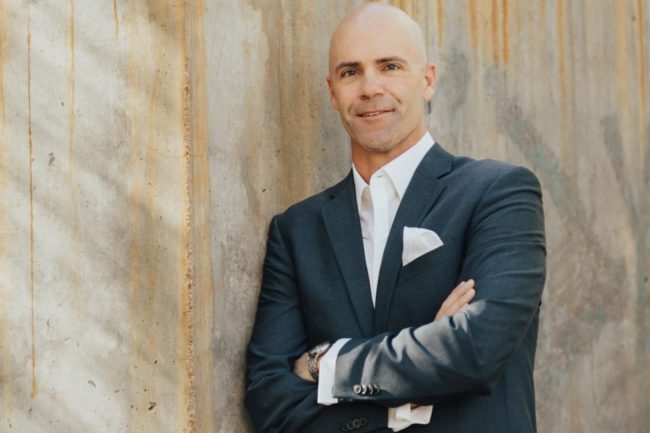
13 Wealth Management Issue #9: Executor & Trustee Selection
Protection Strategies is a catch-all phrase for “getting your ducks in a row” regarding your financial affairs. When we say Protection strategies, it refers to three “elite estate planning” strategies, Titling & Beneficiary Designations, Planning for Incapacity, and finally: Executor & Trustee Selection. Let’s face it, unless you have more than $11 million dollars individually or more than $22 million as a couple, your family doesn’t “technically” have an estate planning concern. However, you do have to address the basic challenges of Legacy Planning and what to do with your financial assets at the end of life. Titling and Beneficiary Designations address how your assets will transfer and to whom they will transfer upon your passing. Planning for Incapacity addresses who will handle your affairs if you are unable to manage them during life. Executor and Trustee Selection addresses that same issue, only from the lens of handling affairs posthumously. Let’s get started.
Executor & Trustee Selection
Number 9 out of 13 in our Wealth Management Issues Series
*Special Protection Strategies Edition part 3 of 3*
While it is the third topic we are addressing in this collection of strategies, Executor & Trustee selection is VERY important. Who is going to be charged with handling your affairs when the time comes? How do we select this individual? What should we be looking for?
Both the Planning for Incapacity and Executor and Trustee Selection really come down to one major decision; “Who do you trust the most to carry out your intentions?”. The era of COVID-19 has taught us that we must always be prepared as we never know when an unexpected illness or accident can happen that prevents us from seeing close family members or our trusted advisors ever again. So why leave this to chance? Why take unnecessary risks? Let’s take a look at a couple of things you can do right now to give yourself more confidence and lower the overall risk that your intentions won’t be followed.
These are tough choices and you do not have to address them on your own. When engaging this process with our clients, it’s recommended to consider the following items:
- Designate a person or organization you trust and with whom we (and your advisors) are able to continue to work with after death
- Make sure your executor knows what is asked of them and share your intentions.
- Schedule and hold a meeting with you, your executor, and all of your advisors so that we are all on the same page
- Schedule and hold a family meeting with your beneficiaries to make sure the family understands your intentions
So, what makes a person a great candidate to be your executor? Trustee characteristics often include but are not limited to the following: trustworthy, legally qualified, willing, maintains financial skills, able to handle assets & liabilities, familiar with estate & objectives, have the time, and are healthy. These are the basic competencies of someone with the minimum qualifications to be an executor. But beyond these, you must trust them. The person you select must be competent, have integrity, and have compassion–as being an executor can be time-consuming for them and difficult for the heirs and family members.
We provide each of our clients with a checklist to help with the Executor selection process. It includes:
- Communication with designee about their role
- Listing of ALL assets
- Location of said documents are
- Information about your assets
- Copies of legal documents (e.g. wills, trusts, etc.)
- Recommendations on communication and interaction with your various advisors
As your lead wealth strategist, we promise to:
- Meet with you and your designee
- Provide you with specific confidential communication on this topic
- Take a multi-generational approach, working with ALL family members and designated beneficiaries
If you are in private practice and have business partners, we will make sure that you, your family, your partners, and your employees are all protected by ensuring you have a documented and funded transition plan. Your partners will be the ones to carry on your business goals and objectives, but who will ensure that your personal intentions and values live on? Your executor or trustee. It’s an important choice.
Regarding your financial plan, our promise to you is that we help you effectively pursue your goals during life and make sure that “all of your ducks are in a row” so your intentions become action following your passing. We will help you make sure all of your plans are solidified and documented; all updated and in one place. We will ensure primary executor, successors, and contingencies are all on board with your goals during life and be there to support them to deliver on your goals following your death.
Death is something that many people are uncomfortable talking about, but in the case of wealth management, the inevitable must be addressed. One of the most important decisions a person must make is who to name as Executor under their will or Successor Trustee under a Revocable Living Trust. After that selection is made, you need to make sure that that person is supported with the best information including signed documents, updated beneficiary designations, appropriate account titling, business continuity, and transition documents just to name a few.
Have you had this discussion with your lead advisor or wealth strategist? If not, have you considered why not? You are a busy professional seeing patients all day and meeting with your teams and partners. You are busy running your practice and trust that your lead advisor is on top of topics like this. If your advisor hasn’t brought this up and only wants to talk about your investible assets and performance, ask yourself why. Why aren’t they asking the tough questions about who will be there to make the decisions if you cannot, during life or after your passing? If they are not working in the best interest of you and your family now, what gives you the confidence they will act in your family’s best interest when you are unable to direct them?
Death isn’t an easy topic to discuss or even think about. As your lead advisor needs to act with integrity, competence, and compassion, there is no greater demonstration of compassion than being willing to have difficult conversations like these now when the financial well-being of your family and your practice depend on the competency and preparedness of your executor.
When considering these issues, it’s important to ask yourself, how do any of these affect you, your family, and your goals? The following installments will cover each of these Wealth Management Issues in greater detail. Our hope is this series of chapters will provide not only an educational forum but also promote thought, leading to action…in a holistic manner, of course. Learn about our other 13 Wealth Management Issues here.
Watch our Whiskey & Wealth Wednesday video of this article:
If you would like to learn more about this subject please contact us and we’ll be happy to help.
For a comprehensive review of your personal situation, always consult your legal advisor. Neither Cetera Advisors LLC, nor any of its representatives may give legal advice.
By Anthony C. Williams, CWS, ChFC, MRFC, CLU | Investment Advisor Representative | President & Founding Partner of Mosaic Financial Associates & Orthopaedist Advisory Group | Securities and advisory services offered through Cetera Advisors LLC, Member FINRA/SIPC, a broker/dealer and a Registered Investment Advisor. Cetera is under separate ownership from any other named entity.







